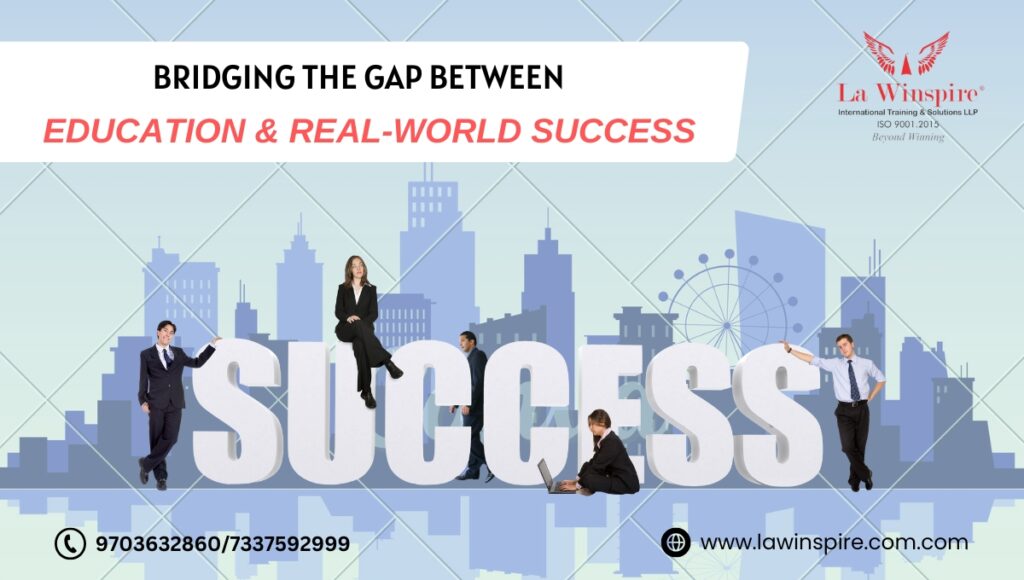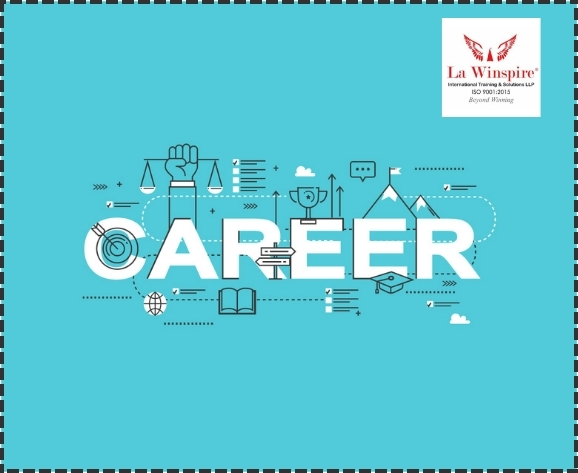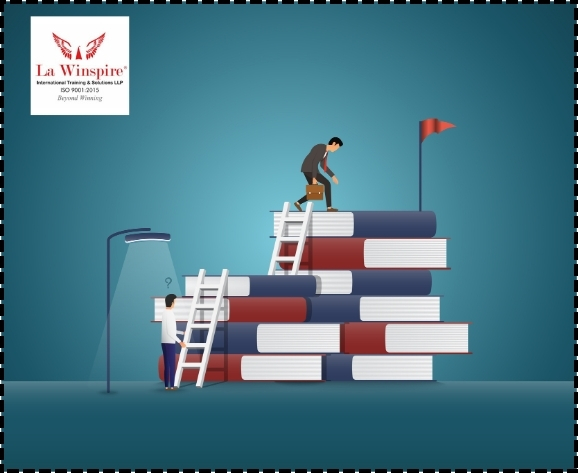Bridging the Gap Between Education & Real-World Success

Education is often considered the gateway to professional success, yet many students find themselves unprepared for the realities of the workforce upon graduation. While academic knowledge provides a strong foundation, it often lacks the practical application required to navigate real-world challenges. The modern job market demands more than just theoretical understanding; it requires critical thinking, adaptability, and hands-on experience. However, practical skills in education, career readiness programs, and industry-relevant education are often missing from traditional curricula, leaving students struggling to bridge the gap between education and real-world success.
Dr. P. Madhurima Reddy, an entrepreneur, peak performance trainer, life & wealth coach, psychologist, and educationist, advocates for a future-ready education system that incorporates real-world learning experiences, work-integrated learning, and soft skills for career success. In this comprehensive guide, we will explore the reasons behind the disconnect and provide actionable strategies to ensure that education aligns with real-world expectations.
The Disconnect Between Education and Employability
1. The Overemphasis on Theory Over Practice
Traditional education systems focus heavily on theoretical concepts, emphasizing memorization and rote learning rather than bridging theory and practice. While academic knowledge is essential, students often struggle to translate what they learn in classrooms into practical, real-world applications. This overemphasis on theory creates a skills gap, making it difficult for fresh graduates to meet industry demands.
A more effective approach would be to integrate real-world learning experiences such as:
- Case studies and real-life problem-solving exercises
- Project-based assignments that require research and critical thinking
- Hands-on workshops and industry exposure programs
2. Lack of Career Readiness Programs
Many educational institutions lack structured career readiness programs, leaving students ill-prepared for the workforce. These programs are crucial in equipping students with the tools and skills necessary to excel in their chosen careers. Effective career readiness initiatives should include:
- Resume-building workshops
- Mock interview sessions with industry professionals
- Career counseling and mentorship programs
- Internship opportunities that provide real-world work experience
By implementing such programs, institutions can ensure that students not only gain academic knowledge but also develop the practical skills in education needed for success.

3. The Skills Gap in the Job Market
Employers today seek candidates with strong critical thinking, problem-solving abilities, and adaptability. However, many graduates lack these essential skills due to a disconnect between education and real-world success. The traditional curriculum often fails to focus on:
- Soft skills for career success, such as communication, teamwork, and leadership
- Technical and digital literacy, which is increasingly in demand across industries
- Entrepreneurial thinking, fostering innovation, and proactive problem-solving
By incorporating skills-based learning and vocational training benefits, educational institutions can better prepare students for the workforce.
How to Bridge the Gap Between Education and Real-World Success
1. Implementing Work-Integrated Learning
A strong work-integrated learning approach enables students to apply their academic knowledge in practical settings. This approach can take various forms, including:
- Internships & Apprenticeships – Providing hands-on experience in real work environments, allowing students to develop industry-specific skills.
- Industry Collaborations – Partnering with businesses and organizations to create industry-relevant education programs that meet market needs.
- Live Projects & Case Studies – Encouraging students to work on real business problems, enhancing their problem-solving and analytical skills.
2. Emphasizing Soft Skills Development
In addition to technical expertise, students must develop soft skills for career success, which are highly valued by employers. These include:
- Communication & Public Speaking – Essential for networking, leadership roles, and professional success.
- Leadership & Teamwork – The ability to work well with others and take initiative.
- Problem-Solving & Adaptability – Skills necessary for overcoming challenges in dynamic work environments.
- Time Management & Emotional Intelligence – Crucial for maintaining productivity and workplace harmony.

3. Promoting Experiential Learning Strategies
A future-ready education system must incorporate experiential learning to enhance students’ capabilities. Some effective methods include:
- Simulations & Role-Playing – Providing real-world training in controlled environments to enhance decision-making skills.
- Entrepreneurial Programs – Encouraging students to develop and execute business ideas to gain real-world entrepreneurial experience.
- Community Projects & Volunteering – Engaging students in meaningful social impact projects that develop leadership and teamwork skills.
4. Integrating Technology & Digital Skills
The modern workforce is driven by technology, making it essential for students to acquire digital literacy and technical expertise. Educational institutions should focus on:
- E-learning Platforms & Virtual Labs – Providing students with interactive, self-paced learning opportunities.
- Coding & Data Analytics Courses – Equipping students with essential digital skills.
- Digital Marketing & Online Business Training – Preparing students for careers in the rapidly growing digital economy.
5. Encouraging Lifelong Learning & Continuous Development
Success in today’s fast-paced world requires continuous learning and professional development. Students should be encouraged to:
- Pursue Online Courses & Certifications – Enhancing their knowledge base with up-to-date information.
- Attend Workshops & Networking Events – Building connections with industry professionals.
- Engage in Self-Development & Personal Growth Programs – Improving skills through coaching and mentorship.
Conclusion
Bridging the gap between education and real-world success requires a transformative approach that prioritizes practical skills, career readiness, and industry alignment. By incorporating work-integrated learning, soft skills development, experiential learning, and technology integration, students can be better equipped for the evolving job market.
Dr. P. Madhurima Reddy, through La Winspire International Training & Solutions LLP, is committed to empowering students with the knowledge and skills needed for professional success. To explore more resources and training programs, visit La Winspire International Training & Solutions LLP.
FAQs
1. Why is there a gap between education and real-world success?
The gap exists because traditional education emphasizes theoretical learning over practical application. Many students graduate without real-world learning experiences, industry-relevant skills, and career readiness training.
2. How can students prepare for real-world success while in school?
Students can engage in internships, experiential learning, career readiness programs, and digital skills training to enhance their employability and practical knowledge.
3. What role do soft skills play in career success?
Soft skills such as communication, leadership, teamwork, and adaptability are essential for professional growth. Employers value these skills alongside technical expertise.
4. How does La Winspire International Training & Solutions LLP help students bridge this gap?
La Winspire, led by Dr. P. Madhurima Reddy, provides training programs, coaching, workshops, and mentorship opportunities to equip students with the skills needed for real-world success.
5. What are some emerging trends in education that focus on employability?
Work-integrated learning, AI-driven education, digital skill development, and personalized learning paths are key trends shaping the future of education to ensure better career success.
By implementing these strategies, we can create an education system that truly prepares students for success in the modern job market.
Also Read: Leadership in the Digital Age: Insights from Dr. P. Madhurima Reddy – La Winspire
